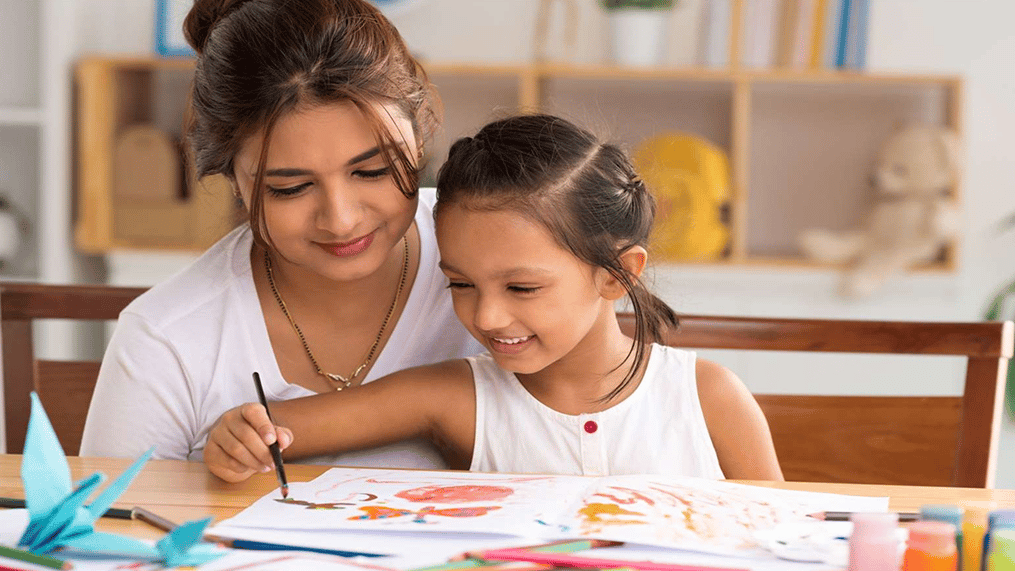- Empathize With Your Kid
- Control Your Temper
- Be Consistent In Discipline
- Discourage Aggression
- Be A Role Model
- Distract Them
In the 21st century, among all the emotions, anger is a familiar one for many individuals. This is because of the hectic, frustrating, and exhausting lives people lead, in a bid for a better life. However, anger is a normal healthy emotion when dealt with appropriately to express our displeasure or annoyance towards a particular creature, situation, or thing. But when one lets the emotion overpower their judgment, it is important to get your reins of control in order. While anger is often expressed and solved by adults, in kids, it takes a more chaotic turn. While adults can still communicate their feelings with words instead of screaming and using fists, children cannot. They still barely understand the notions of self-restraint and lack the maturity to talk the matter out. This results in kicking, biting, screaming, shoving, hair-pulling, punching, and more in children who throw a royal tantrum when angry. Now the occasional tantrum is comprehensible in very young children and toddlers.
But what about your 9-year-old who still throws things at you in a fight or the 10-year-old next door who bites their parents when they do not get potato chips for dinner? If these instances are frequent and if your kids are over the age of 8, then they may be suffering from anger issues. Anger issues can also occur in young children if highly pampered, excessively scolded, or suffer from autism, ADHD (attention-deficit hyperactivity disorder), or OCD (obsessive-compulsive disorder). But you need to visit a health professional for a full diagnosis.
It is always ideal to deal with anger issues early to avoid letting it set in. Check these top tips to manage anger issues in your young kids and see your house evolve into a safe, peaceful zone.
Top Tips To Deal With Anger Issues In Young Kids
1. Empathize With Your Kid
Young children are the angriest when they feel their parents cannot understand them. You need to focus on putting yourself in their shoes and viewing their problems and objections from their age group’s perspective. After all, you did cross that age. Try to understand how they feel and make them realize that you do hear them. That will help lessen their anger issues and resolve multiple conflicts without blowing up.
2. Control Your Temper

You cannot teach your kids to control their temper if you are unable to do so yourselves. Children lack the self-restraint adults possess and often mimic and say things they do not mean. Therefore, you need to be the better person and not shout your frustration at them. Instead, try doing the breathing and counting exercises you suggest to your kids, to calm down.
3. Be Consistent In Discipline
It is important to set rules and limits, but it is more important to remain consistent with them. Your kids will learn certain behaviors are not acceptable only if they are reinforced and corrected regularly. Children are creatures of habit, so if you wish to discipline them, do so regularly, and never be half-hearted about it. You will get the chance to improve their moods later. Apologize if you make mistakes, but not for disciplining them.
4. Discourage Aggression

Discourage aggression and avoid hitting your children. Though certain behaviors, mistakes, or circumstances may call for it, it is a grave error for parents. For children learn that it is okay to lose their temper and hit someone if they think that person has made a ‘big mistake’. But they will not be able to apply that discretion at their age, so discourage all forms of aggressive behavior in kids.
5. Be A Role Model
It is important to be a good role model for your kids as they mimic their parents, instead of learning from them. Therefore, if your child has anger issues then you need to be a healthy role model for them to follow, admire, and copy. Maintain calmness and patience, take micro-breaks from parenting, and avoid lashing out at them. Your peaceful handling of conflicts can do wonders for your kid’s anger issues.
6. Distract Them

When your kid is angry or lashing out, try to distract them with any other mindful activity. They may initially resist, so do not force them. Instead, offer them options between a time-out or a healthy activity. After a couple of times, your kids will opt for the mindful painting, or breathing activity and evolve as an individual instead of stewing alone and angrily in their rooms.
Conclusion
Anger issues are no joke. They can be really taxing on family life and parenting. Therefore, it is important to address the issue early in children. Teach them kindness and compassion, read them moral stories, and inculcate good family values in your children. If your child understands how kindness can change the world, they will never lash out again. Give these top tips to manage anger issues a try and watch your young kids grow up into kind and resilient individuals.
Kaushiki Gangully is a content writing specialist with a passion for children's nutrition, education, and well-being. With more than five years of writing experience and a science-based background, she provides nuanced insights to help families raise happy, healthy kids. Kaushiki believes in making learning and healthy eating fun, empowering parents with practical, easy advice.
The views expressed are that of the expert alone.
The information provided in this content is for informational purposes only and should not be considered a substitute for professional medical advice, diagnosis, or treatment. Always seek the advice of your physician or another qualified healthcare provider before making any significant changes to your diet, exercise, or medication routines.
















